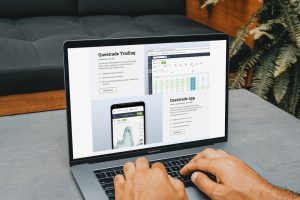Forex trading is a highly competitive and ever-evolving market, and choosing the right forex broker is crucial for successful trading. One of the key factors to consider when selecting a forex broker is the spread they offer.
What is a Spread?
In simple terms, a spread is the difference between the bid and ask price of a currency pair. The bid price is the price at which a trader can sell a currency, while the ask price is the price at which a trader can buy a currency. The spread represents the broker’s profit and is typically measured in pips.
Why is Spread Important?
The spread directly affects the profitability of a trade. A tight spread means that the broker charges a minimal difference between the bid and ask price, making it easier for traders to make a profit. On the other hand, a wide spread means that the broker charges a significant difference, making it harder for traders to generate profits.
Comparing Forex Broker Spreads
When comparing forex broker spreads, there are several factors to consider:
1. Fixed vs. Variable Spreads: Some brokers offer fixed spreads, meaning that the spread remains constant regardless of market conditions. Others offer variable spreads, which fluctuate depending on market volatility. Fixed spreads provide more certainty, while variable spreads can be tighter during low volatility periods.
2. Major vs. Exotic Currency Pairs: Different brokers may offer different spreads for major currency pairs such as EUR/USD or GBP/USD compared to exotic currency pairs like USD/ZAR or USD/TRY. It is essential to consider the currency pairs you plan to trade and compare spreads for those specific pairs.
3. Account Type: Brokers often offer different account types, such as standard accounts or ECN (Electronic Communication Network) accounts. ECN accounts usually offer tighter spreads but may charge a commission per trade. Standard accounts may have wider spreads but no additional commission fees. Consider your trading style and preferences when choosing an account type.
4. Market Conditions: The spread offered by brokers can vary depending on market conditions. During periods of high volatility, such as news releases or economic events, spreads tend to widen. It is crucial to assess how brokers handle spreads during such market conditions to avoid unexpected costs.
5. Broker Reputation and Regulation: It is essential to choose a reputable broker with proper regulation. Regulated brokers are subject to strict guidelines and standards, ensuring the safety of your funds. Additionally, a broker’s reputation can indicate their reliability and customer satisfaction.
Choosing the Right Forex Broker
Now that we understand how to compare forex broker spreads, let’s discuss how to choose the right one for you:
1. Define Your Trading Style: Different trading styles require different spreads. Scalpers who execute numerous trades in a short period may prefer brokers with tight spreads and low commissions. Swing traders, on the other hand, may prioritize brokers with reasonable spreads for longer-term trades. Determine your trading style and find a broker that caters to your needs.
2. Research and Compare: Conduct thorough research and compare spreads offered by different brokers. Look beyond spreads and consider other factors mentioned earlier, such as account types, currency pairs, and market conditions. Use online comparison tools, read reviews, and seek recommendations from experienced traders.
3. Demo Accounts: Most reputable brokers offer demo accounts, allowing traders to test their platforms and trading conditions with virtual funds. Utilize these demo accounts to assess the spreads offered and determine if they align with your expectations.
4. Customer Support: Consider the quality of customer support provided by the broker. Prompt and efficient customer support can be crucial, especially if you encounter any issues or have questions regarding spreads or other trading-related matters.
5. Consider the Overall Trading Experience: While spreads are essential, they should not be the sole determining factor. Consider the overall trading experience offered by the broker, including platform reliability, order execution speed, educational resources, and additional trading tools. A good trading experience can enhance your chances of success.
In conclusion, when comparing forex broker spreads, it is crucial to consider factors such as fixed vs. variable spreads, currency pairs, account types, market conditions, reputation, and regulation. Define your trading style, conduct thorough research, utilize demo accounts, and consider the overall trading experience before making a decision. By carefully evaluating these factors, you can choose a forex broker that offers competitive spreads and meets your trading requirements.













